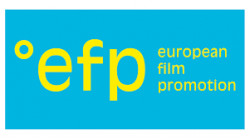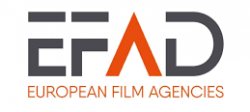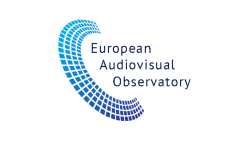National Film Centre of Latvia is a member of several international film industry organizations and represents Latvia in the current processes of the European film industry.
Founded in 1989, Eurimages promotes film industry across Europe by supporting international co-productions. Feature-length films involving at least two countries from its member states, which covers 37 European countries and Canada, can receive financial support from the foundation. Latvia has been a member of Eurimage since 2002. Inga Blese, Head of Production Department of the National Film Centre of Latvia, represents the country in the fund's sessions and project evaluation processes.
Since 1991, the MEDIA sub-programme of the EU Creative Europe programme provides financial support for the preparation of film projects and the distribution of films, film festivals and international further education activities. The objectives of the EU's Creative Europe programme are to protect, develop and strengthen Europe's cultural and linguistic diversity; strengthen the competitiveness of Europe's cultural and creative industries in order to promote smart, sustainable and inclusive growth; support the capacity of Europe's cultural and creative industries to operate transnationally and internationally.
Creative Europe MEDIA offices operate in 28 member states of the programme. In Latvia the office operates within the National Film Centre of Latvia and is managed by Lelda Ozola, who advises Latvian film producers on the possibilities of applying for funding of Creative Europe MEDIA competitions.
Cooperation platform of three film industry management organizations of Baltic countries for joint activities; the cooperation is regulated by a tripartite agreement and is visualised by logo of Baltic Films created by the artist Ilmārs Blumbergs. Baltic Films annually agrees on a joint work plan and representation in the most important international film festivals and film markets, awards the Baltic Prize to Nordic films shown at the Lübeck (Germany) Film Festival, promotes projects for the Trieste Festival Award (Italy), organizes Baltic Film Days in Latvia, Lithuania and Estonia in August, promotes Baltic films in other countries. Baltic Films regularly compiles statistics on the development of the film industry in all three countries, issuing the statistics booklet Facts & Figures every year in February.
An international network of film promotion institutes from 37 countries throughout Europe, each representing their national films and talent abroad. Under the EFP flag, these organizations team up to jointly promote the diversity and spirit of European cinema and talent at key film festivals and markets, in particular outside of Europe. EFP is financially supported by the Creative Europe – MEDIA Programme of the European Union and by its member organizations.
EFAD (European Film Agency Directors association) is the voice of national European Film Agencies, bringing together the national film and audiovisual agencies across Europe. The 35 EFAD members of the Brussels-based association are government or government-associated public bodies, in charge of national funding for the audiovisual sector and with the responsibility to advise or regulate on all aspects of audiovisual policies.
The European Audiovisual Observatory was set up in Strasbourg in 1992 to reply to a distinct lack of information and transparency concerning this industry. To the present day, it continues to provide a comparative European overview of the audiovisual industry in 41 different countries as well as detailed analysis of national and even regional industries.
The Observatory has two departments whose Experts and Analysts gather and process the information. The Department for Market Information produces statistical and economic analysis of the trends in the European cinema, television, video and internet sectors. It also produces intelligence on the means of financing of these various sectors. The Department for Legal Information analyses key legal issues linked to the audiovisual sector and reports on major legal developments and ground breaking cases which affect media legislation in Europe.








